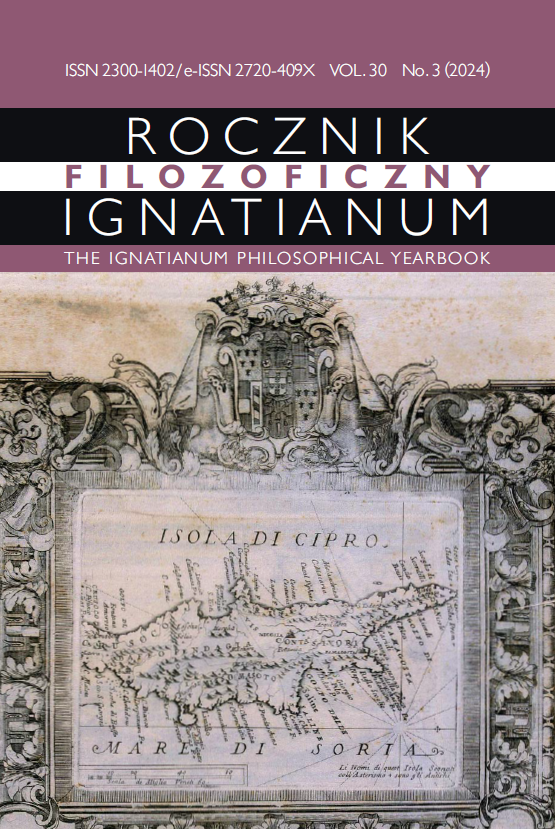Introduction
Abstrakt
In this issue of the Ignatianum Philosophical Yearbook, the first section focuses on texts related to Mediterranean history. Many texts center around Cyprus (Greek: Κύπρος, Turkish: Kıbrıs), often referred to as Aphrodite’s Island, as it is said to be the birthplace of the most beautiful goddess of antiquity, who, according to myth, emerged from the sea foam on its shores. The significance of Mediterranean culture, the cradle of classical civilization, is well known and needs no elaboration. The GrecoRoman world profoundly shaped European identity, culture, and history, influencing the political development of the continent as a whole. Within this context, Cyprus stands out as a particularly important region. As an integral part of Mediterranean culture, Cyprus has made significant contributions to the development of the broader Mediterranean world. Modern Cyprus, or more specifically the Republic of Cyprus (Gr. Κυπριακή Δημοκρατία, Tur. Kıbrıs Cumhuriyeti), is currently overshadowed by other developments in the Mediterranean, particularly in the eastern region. A significant factor is the longstanding conflict between the island’s Greek and Turkish populations, commonly referred to in academic and diplomatic circles as the “Cyprus problem.” Since 1974, Cyprus has remained divided: the southern part is predominantly inhabited by Greek Cypriots, while the northern part is home to Turkish Cypriots and houses the self-declared Turkish Republic of Northern Cyprus, a state recognized only by Turkey1. Almost fifty years have passed since the division, yet no effective solutions have emerged to resolve the impasse. The two communities live separately, divided by a buffer zone known as the Green Line, which is monitored by the United Nations Peacekeeping Force in Cyprus (UNFICYP). The future of Cyprus remains uncertain, but the situation continues to pose challenges for Turkey’s relations with Cyprus, Greece, the European Union, and the broader international community.
Copyright (c) 2024 Ignatianum University in Cracow

Utwór dostępny jest na licencji Creative Commons Uznanie autorstwa 4.0 Międzynarodowe.
Rocznik przyjmuje do druku wyłącznie materiały, które nie wchodzą w żaden konflikt interesów, żaden konflikt z prawem autorskim itp. Redakcja prowadzi działania przeciw: plagiatom, ghostwriting1, guest/honorary authorship2 itp. Autor pracy zbiorowej, który jest pierwszy na liście, bierze na siebie odpowiedzialność i ma obowiązek przedstawić wkład wszystkich współautorów. Jeśli publikacja powstała dzięki dedykowanym środkom finansowym, należy ujawnić to np. w Podziękowaniu, przypisie itp. Ew. przedruki wymagają jawnego zgłoszenia i okazania odpowiedniego pozwolenia wydawniczego. Autorzy / Recenzenci nierzetelni narażają się na reakcję właściwą stosownym instytucjom.
______
1 Ma to miejsce, gdy osoba mająca istotny wkład jest pominięta na liście Autorów czy w Podziękowaniu.
2 Zachodzi, gdy na liście autorskiej pojawia się osoba mająca znikomy/żaden udział w pracy.





